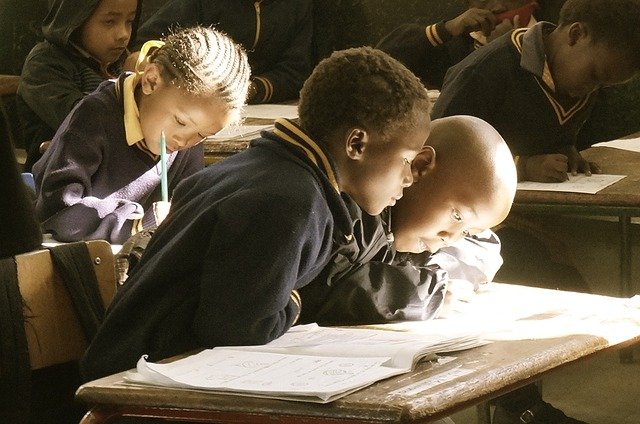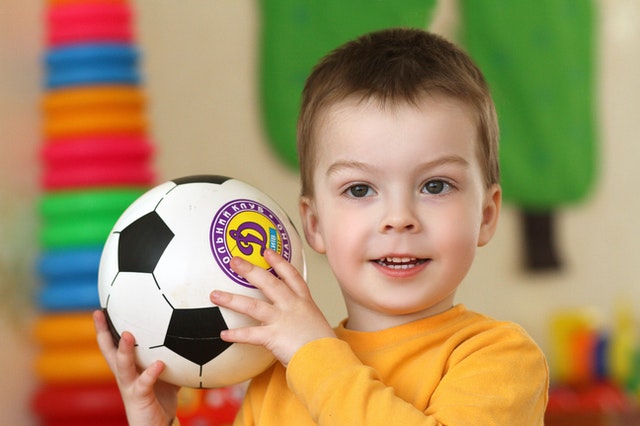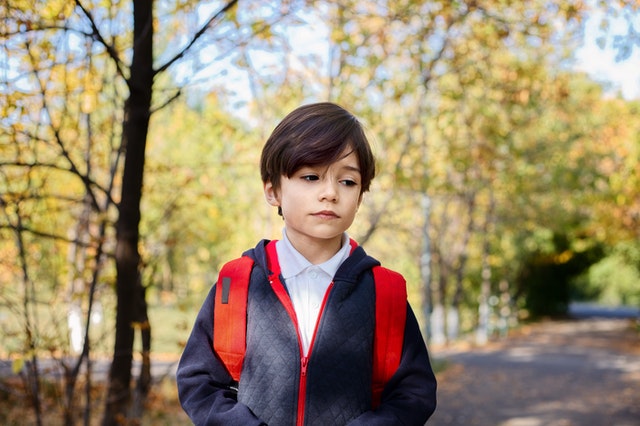Social situations are complex and have many elements. You not only notice the emotions of others but also what is happening in and around the situation. That is the context. Many children with autism may be able to learn others’ emotions and facial expressions, however, to respond appropriately they have to understand the context of the social situations. When they don’t understand it, they experience context blindness. How does context blindness affect your child with autism?
What is context blindness?
Context blindness (affiliate link) is a cognitive theory that was developed by Peter Vermeulen, MSc, Ph.D., who is a researcher and senior lecturer/consultant at the Autisme Centraale in Belgium.
Dr. Vermeulen defines context blindness as “the lack of spontaneous use of context when giving meaning, especially to vague and ambiguous stimuli.”
When responding to a situation or someone’s emotions, we use clues about what is happening around the situation to give it context. For example, we react differently to a bell ringing depending on the context of the situation. If we are in school, a bell usually means the current class is over, and we move to the next class. When you hear a bell from a community clock, then it is marking the next hour. If someone is crying, it could mean that they are upset or happy, depending on the situation.

Why do children with autism often have context blindness?
Children with autism often don’t understand social cues and interpreting meanings of situations. According to Dr. Vermeulen, being able to communicate effectively requires a great deal of context sensitivity. Children with autism generally lack skills such as facial perception, emotion recognition and problem solving. These are usually coupled with being literal. That contributes to context blindness in children with autism.
What this means is that people with autism tend to think in more absolute terms and not relative ones. They have difficulty interpreting multiple pieces of information at once. We see it in our kids when they don’t get the punch line of a joke or take a sarcastic remark to be one that is genuine. While many words and phrases could have many meanings depending on the context, our children may give them only one.
How does context blindness affect communication?

Context blindness can have a significant effect on your child’s ability to communicate effectively.
For those of us who are neurotypical, we usually don’t have as many problems with context. We step into a room and can size up the situation quickly (our brains do this in about 40 to 500 milliseconds unconsciously). Therefore, when someone speaks, we more automatically understand the context and the meaning of their words.
I have seen this throughout our son J’s life. I can think of many times when he misinterpreted a situation because of context blindness. Sometimes, it led to making a hard time even worse until we could help him understand what was really going on. For instance, his friend would make a sarcastic remark, and J became angry because he thought the remark was mean. We had to be careful about joking around him because jokes confused and upset him.
Most of our kids have had social skills training through some type of therapy, whether it’s been speech, occupational, behavior or applied behavior analysis. They learn how to recognize emotions through facial cues, how to start conversations and what to say in situations. This is good learning; however, it is inadequate because context usually isn’t involved in this controlled environment like it is in real life. In therapy, our kids have time to think about a social cue. In real life, situations are spontaneous and quick. Being able to size up a situation almost instantaneously is the key to responding appropriately to it.
Can context be taught?

So if our kids are learning better social cues and proper language through different types of therapy, can context be taught too? Dr. Vermeulen recommends including context to be more effective therapy.
Instead of teaching children with autism just a list of rules and providing scripts to them, context needs to be added to the education materials. It is important for children to learn what is socially appropriate but even more important that they learn when a behavior or comment is socially appropriate. Teaching context with the social skills and language training is a key part of that learning.
Most of the social skills education materials are generic. Instead, they need to be set in specific situations. For example, how your child starts a conversation on the playground with other children would be different than how they would start a conversation with someone who is ill in the hospital.
Adding context to the tools being used to teach social skills would be helpful, whether that is Social Stories™, speech apps or even discussions we have with our children as we explain situations to them.
How to help your child with context blindness

As a parent, how can you help your child with autism decrease their context blindness?
- If you are using Social Stories™ or other tools to help your child learn social skills, choose ones that provide context or set up the story to be in a specific situation to give it context.
- Role play different topics in various situations to help your child understand how to behave in certain situations and not focus only on the specific social skill.
- Be sure to point out the multiple pieces of information your child needs to know in a situation.
- Talk about real life situations that occurred and any misunderstanding your child had because of context blindness. This can help them learn about what really occurred and how understanding the context would have helped.
- If your child is getting upset because over something because of a lack of context, be empathetic, pull them aside and explain the situation so they better understand it. This also can help avoid a potential meltdown.
- Avoid sarcasm with your child and use concrete language when possible.
- If your child is upset by jokes, then forego them. Our son J doesn’t like teasing or sarcastic jokes about him, but he finds the more obvious, quite bad Dad jokes hilarious. Know what your child can handle.
- If you use slang, you’ll probably need to explain it to your child, so they don’t take it literally. If it confuses them too much, then avoid using slang phrases with them.
What are some ways you’ve successfully taught your child with autism context? How has it helped their context blindness? Leave a comment so we can share and support one another on this journey.








